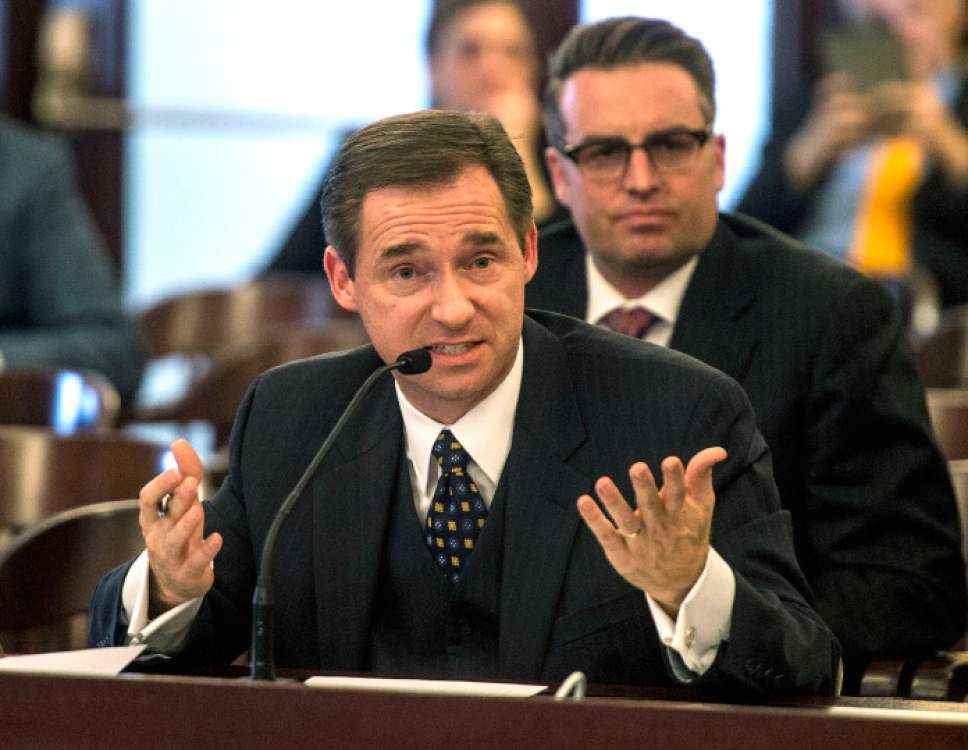This is an archived article that was published on sltrib.com in 2017, and information in the article may be outdated. It is provided only for personal research purposes and may not be reprinted.
For the second year, a secret shopper program to evaluate customer service at Utah's state-owned liquor stores has failed to make the grade in the Utah Legislature.
HB97 would have required the Utah Department of Alcoholic Beverage Control (DABC) to create an Operations Investigation Program, which would monitor customer service, store cleanliness, product availability and compliance with laws controlling the sale of alcoholic beverages. The bill failed 4-2 in the Senate Business and Labor Committee on Monday.
Rep. Steve Eliason, R-Sandy, the bill's sponsor, drafted a similar proposal in 2016 that also failed. After receiving emails and reading news reports about liquor stores running out of stock, he decided to resurrect the bill this year. "This is an area I've worked in for many years," Eliason said. "And any retailer of any magnitude has a secret shopper program."
Under the proposal, the DABC would get $176,000 from liquor profits to hire a private entity to secretly rate liquor stores in different customer service areas. The DABC would received monthly reports on store performance and employees who received positive reviews would be eligible to receive a $50 bonus.
"If we are going to be in the liquor business, we should act like a regular retailer," Eliason said. "You get what you measure. You are what you measure."
Several senators disagreed, saying customer service is not the problem. There has been a high turnover among liquor store employees because of low wages; the majority of employees also are part-time workers who don't receive health insurance or other state benefits.
At one point, an exasperated Sen. Gene Davis, D-Salt Lake City, asked Eliason, "Have you ever been in a liquor store?" To which Eliason responded, "No."
Davis offered a quick tutorial: "Employees run customers through the checkout line and they stock shelves with product that is delivered to them based on information from a computer.
"If they run out of product, it's not because of poor customer service," Davis said. "It's because the computer didn't send them enough and they have to wait until the next truckload. They have no control over what is on the shelf and what is not."
Sen. Karen Mayne, D-West Valley City, whose HB155 would provide additional funding to the DABC, argued that the $176,000 appropriation would be better spent on employee raises. "I have been to many, many stores and the turnover is high and the employees have not been treated fairly," she said. "We could do a lot with $176,000. That's were it needs to go."



